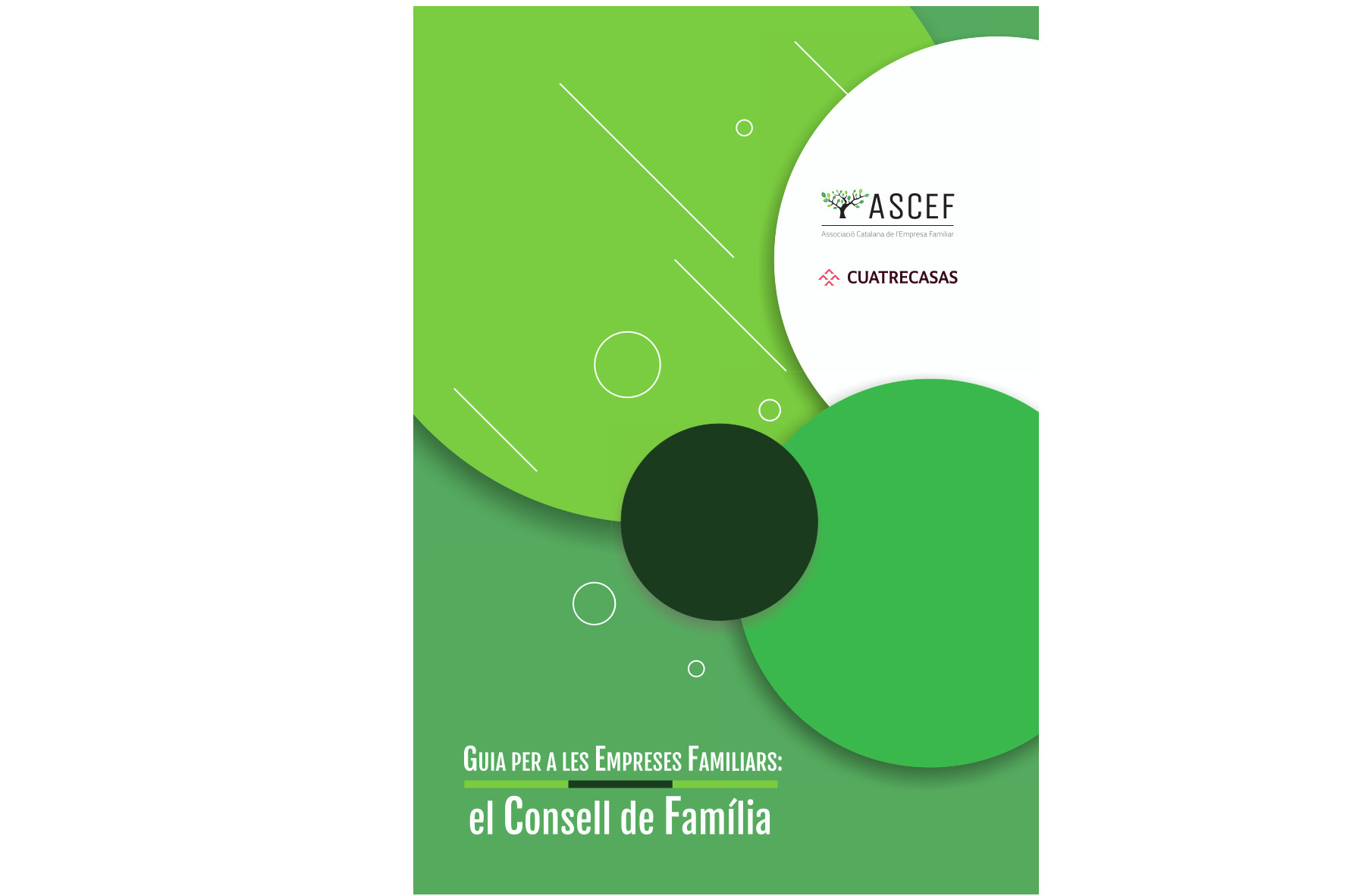The ASCEF develops a guide to promote the constitution of Family Councils currently present in only 3 out of 10 companies

- This is an optional resource that is typically considered for succession decisions or in situations of conflict.
- The guide, which includes examples and a regulation model, will be free for all entrepreneur families.
The Catalonian Family Business Association (ASCEF) has developed an instrumental guide for the Family Council seeking to encourage family enterprises to implement this corporate governance instrument which is currently present in only 3 out of 10 family businesses. The Family Council is an optional body for self-management and debate whose main functions include making strategic decisions for the company, acting as connecting element between the family, the board of directors and the company’s management, and also preparing family successions and preventing family conflicts. It should also further the family members’ implication and create emotional ties with the business.
The Family Council Guide, which ASCEF will make available, at no cost, for all family entrepreneurs through its website ascef.com, is a theoretic document that also includes practical cases and a guiding regulation model. This handbook has been prepared by the Family Business departments of the universities Abat Oliba CEU, Universitat de Barcelona, Universitat de Girona, Universitat Internacional de Catalunya and Universitat de Lleida in collaboration with Cuatrecasas law firm.
“As an organization comprised of over 100 companies representative of the Catalonian business fabric, we have considered it necessary to lead an awareness and promotion project on the advantages of counting on a Family Council to develop constructive and long-lasting dynamics in order to contribute to the business project“, said ASCEF President, Amadeu Jori.
For Jori, “one of the current challenges of family businesses is that they only consider the use of a Family Council when giving way to second or successive generations or when they found themselves in tension-causing situations. This is not an efficient way to act since it inhibits the development of an environment of trust in which to make strategic decisions with transparency and consensus“.
According to data by the Association (*), 39% of family businesses in Catalonia are in the hands of their respective founding entrepreneurs, in 48% of cases, the second generation has a prevailing presence, both regarding ownership and family business management, while third generations are only present in 8% of the companies. With regard to succession processes, 48% of family businesses acknowledge not having agreed on the way successions would take place.
It is important for ASCEF that entrepreneur families change their non-binding informal communication spaces for Family Council bodies, and that they also regulate their operation, structure and role by clearly outlining its responsibilities, composition, agreement reaching systems and ways of steering them towards business governance bodies.
According to experts, the Family Council should pay special attention to communication, information and the education of its members. The challenge is to maintain a fluent and ongoing communication level, so that points of union among family, ownership and business stay solid, and that the family enterprise strengthens its business following the best standards of good governance and competitiveness.
Family businesses in Catalonia stand for 88% of the total number of enterprises, 76% of private employment and 68% of the economy’s added value. For 74% of family businesses, their family nature constitutes both a positive aspect and a competitive differentiating asset.